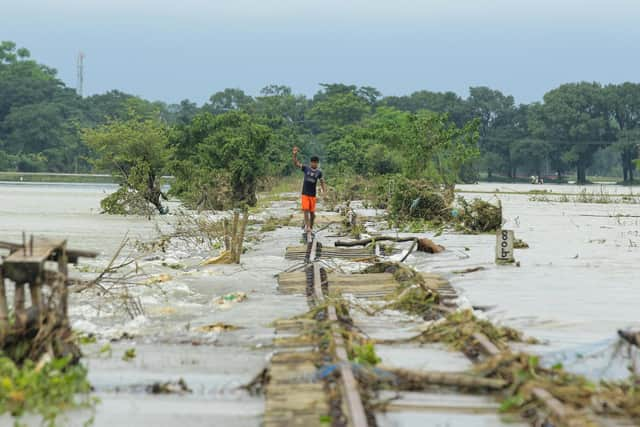Climate change: After UN's grimmest warning yet, world must make massive cuts in carbon emissions, not rely on expensive, unproven new technology – Dr Richard Dixon
The Intergovernmental Panel on Climate Change’s sixth-assessment synthesis report is the culmination of years of work by the world’s climate scientists. It brings together three previous reports covering emissions, predictions of the future social and nature impacts, and solutions. These reports were published in 2021 and 2022. Each of them painted a grim picture with climate impacts happening faster and to a greater degree than previously predicted, and the opportunity to head off the worst future effects disappearing fast.
So it is not really a surprise that a synthesis of three grim reports is itself pretty grim. The report spells out the toll on people, livelihoods and nature that we have already seen, and how much worse it could get. On keeping the world’s temperature rise below the critical danger threshold of 1.5C the report says there is still a slim hope if action to reduce emissions is massively accelerated.
Advertisement
Hide AdAdvertisement
Hide AdWhat is different this time is the escalating stridency of the messages around the report, with the media calling it a "final warning” from the scientists. A friend of mine who works on climate justice expressed it well on Twitter: “If you got this prognosis from a doctor, you and your family would be in floods of tears. And then you’d do everything you could to change your lifestyle, to have a fighting chance.”
UN boss António Guterres said “the climate timebomb is ticking”. He called the report a ‘how-to’ guide to defusing that timebomb and asked rich nations to aim for net-zero emissions as close to 2040 as possible, much faster than most countries’ current plans, including Scotland’s target of 2045.
The responses from governments were entirely predictable – yes this is bad, we ought to do a bit more but don’t worry we’re working on it. The UK Government said: “We need to go further and faster.” Nicola Sturgeon called it a “very, very loud wake-up call”. John Kerry for the US said… well, I read it as “blah, blah, blah” as Greta Thunberg would say.
Part of the message from the UN was that things are so desperate and it is so late in the day that we need to go for every solution we can think of as soon as we can and in as big a way as possible – everything, everywhere, all at once, as Guterres said.
It is easy to understand his frustration at the lack of action but it is a dangerous philosophy to bet our future on very expensive technologies that have not been proved at scale like carbon capture and direct air capture or always-late, always-over-budget nuclear with its insoluble radioactive waste problem.


The summary in the report has to be agreed unanimously by all UN members, giving Saudi Arabia the chance to make sure messages on fossil fuels were watered down and the role of carbon capture and storage was talked up. The report itself shows clearly that the massive carbon reductions we need are going to come from ditching fossil fuels and boosting efficiency, wind power and solar, not technologies that are barely off the drawing board.
Dr Richard Dixon is an environmental campaigner and consultant
Comments
Want to join the conversation? Please or to comment on this article.